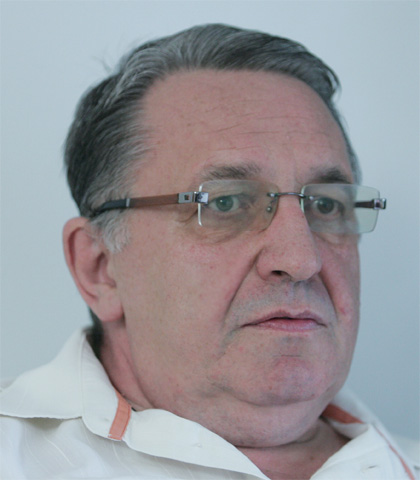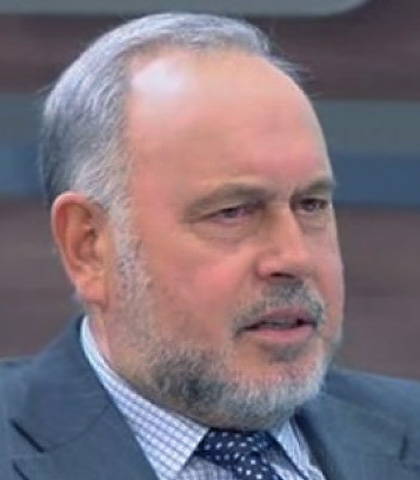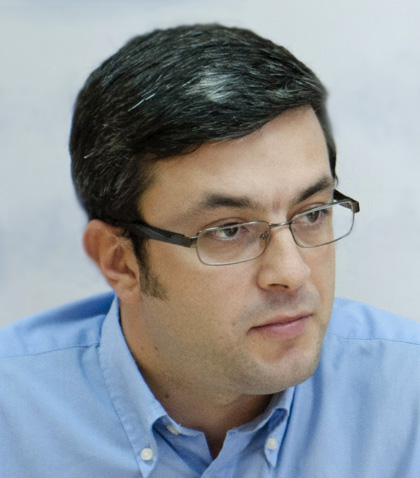The EU and Turkey reached an agreement at the Brussels-held summit on Sunday, regarding the migration crisis. It envisages the granting of EUR 3 billion over the next couple of years, in order for Turkey to be able to cope with the receiving of Syrian refugees. In exchange our southern neighbor will help for the ceasing of the EU-targeted migrant flow. The summit also contracted the acceleration of the negotiations for Turkey’s EU accession. A few days earlier the EP discussed the implementation of constant and full control along the EU’s external borders. A resolution was voted for the prevention of radicalization and the recruiting of European citizens by terrorist organizations.
 Deputy Chair of the Civil Liberties, Justice and Home Affairs Committee – Bulgarian MEP Iliana Yotova spoke in the plenary hall as well.
Deputy Chair of the Civil Liberties, Justice and Home Affairs Committee – Bulgarian MEP Iliana Yotova spoke in the plenary hall as well.
“The fortification of the EU’s external borders should be the initial step. I did underline that we should talk about the security of the entire EU, not only of the Schengen space. It is obvious that neither Bulgaria nor the other member-states have enough resources and experts. There is a dangerous trend, especially among a series of radical European parties, the migration process to be related to terrorism by all means and terrorism to be linked to a certain religion. However, we must know who and why crosses the EU territory and the Bulgarian external border in particular.”
The Russian jet, shot down by Turkey is still in the focus of public attention. What are the consequences that we might expect?
 “That risky step, taken by Turkey, will lead to the subversion of the Vienna-reached agreement of 9 paragraphs from the Second Vienna meeting on November 14,” says Head of the Center for Strategic Research in the Field of Security and International Relations Simeon Nikolov. “There will be other consequences, such as the sharpening of the tension between Russia and the West. I expect that the Turkish party will use the situation for the updating of some of its ideas, such as a zone, banned for flights, later on reworded as “free zone”. Thus the trust towards Turkey is going down. The latter has always been a difficult partner for the EU, NATO and the USA.”
“That risky step, taken by Turkey, will lead to the subversion of the Vienna-reached agreement of 9 paragraphs from the Second Vienna meeting on November 14,” says Head of the Center for Strategic Research in the Field of Security and International Relations Simeon Nikolov. “There will be other consequences, such as the sharpening of the tension between Russia and the West. I expect that the Turkish party will use the situation for the updating of some of its ideas, such as a zone, banned for flights, later on reworded as “free zone”. Thus the trust towards Turkey is going down. The latter has always been a difficult partner for the EU, NATO and the USA.”
 “I think that was an unadvised action which shall now change not the balance of forces, but the relations in the Middle East,” says in his turn security expert Slavcho Velkov. “The answer has begun and it will be military, political or economic in its character. It might be somewhere in the Black Sea, as Turkish vessels and planes often violate air and sea space there. I am stunned by Turkey’s cynicism and its explanations, grounded on the international law and territorial inviolability. I know well the area of the accident and I can say that there have been over 200 violations of the air space, committed by Turkey deep into Iraq’s territory, including by land forces.”
“I think that was an unadvised action which shall now change not the balance of forces, but the relations in the Middle East,” says in his turn security expert Slavcho Velkov. “The answer has begun and it will be military, political or economic in its character. It might be somewhere in the Black Sea, as Turkish vessels and planes often violate air and sea space there. I am stunned by Turkey’s cynicism and its explanations, grounded on the international law and territorial inviolability. I know well the area of the accident and I can say that there have been over 200 violations of the air space, committed by Turkey deep into Iraq’s territory, including by land forces.”
What is the way to fight the so-called “Islamic State”?
“The financial flows towards it should be cut,” Slavcho Velkov says. “Rumor has it that Saudi Arabia, Turkey, Qatar – a total of some 40 states support the ISIS. Only when the resources are stopped, we can talk about its physical liquidation. Just picture the fate of those 9 – 10 million supporters of Bashar Assad in Syria, in case DAESH wins – that will be the new huge migrant wave. Turkey’s priorities are the Kurds. Russia doesn’t see as its priority the taking down of Bashar Assad’s regime – it upholds the government and takes part in the battle against terrorists. The USA still doesn’t have that priority either. A common stance on the priority should be reached as well as an effective coalition. Europe has done nothing so far, besides sittings, councils and meetings.”
 Mr. Toma Bikov from the Institute for Rightist Politics comments the Bulgarian stance in this complicated political situation:
Mr. Toma Bikov from the Institute for Rightist Politics comments the Bulgarian stance in this complicated political situation:
“The Bulgarian line hasn’t changed over the past couple of years which means it is stable. We were the first to begin fortifying the border with Turkey first and we were criticized for that. We should ban the Saudi funding at least in Europe. Isn’t it about time to ban people, somehow funded by Saudi Arabia, from preaching radical Islam? If we don’t have an adequate stance on this matter, we will have our own jihadists in time. Bulgaria has granted asylum to 90 percent of the applicants, but those who have crossed the border illegally won’t receive that status.”
English version: Zhivko Stanchev
Deputy Prime Minister Atanas Zafirov's attendance at a military parade in China provoked a strong reaction from We Continue the Change-Democratic Bulgaria (PP-DB) , who submitted a declaration to the National Assembly. Speaking from the parliamentary..
The autumn session of the 51st Bulgarian National Assembly was opened with the anthems of the Republic of Bulgaria and the European Union, after which the parliamentary speaker Natalia Kiselova called on the deputies to be fully aware of the..
Bulgaria contributes to the defense of Ukraine and the common security of the European Union through the weapons it produces and with the decision to participate in the SAFE financial mechanism, through which the European defense industry should be..
EU roaming fees to be eliminated for Albania and Montenegro Roaming charges between Albania and the EU will be completely..

+359 2 9336 661
